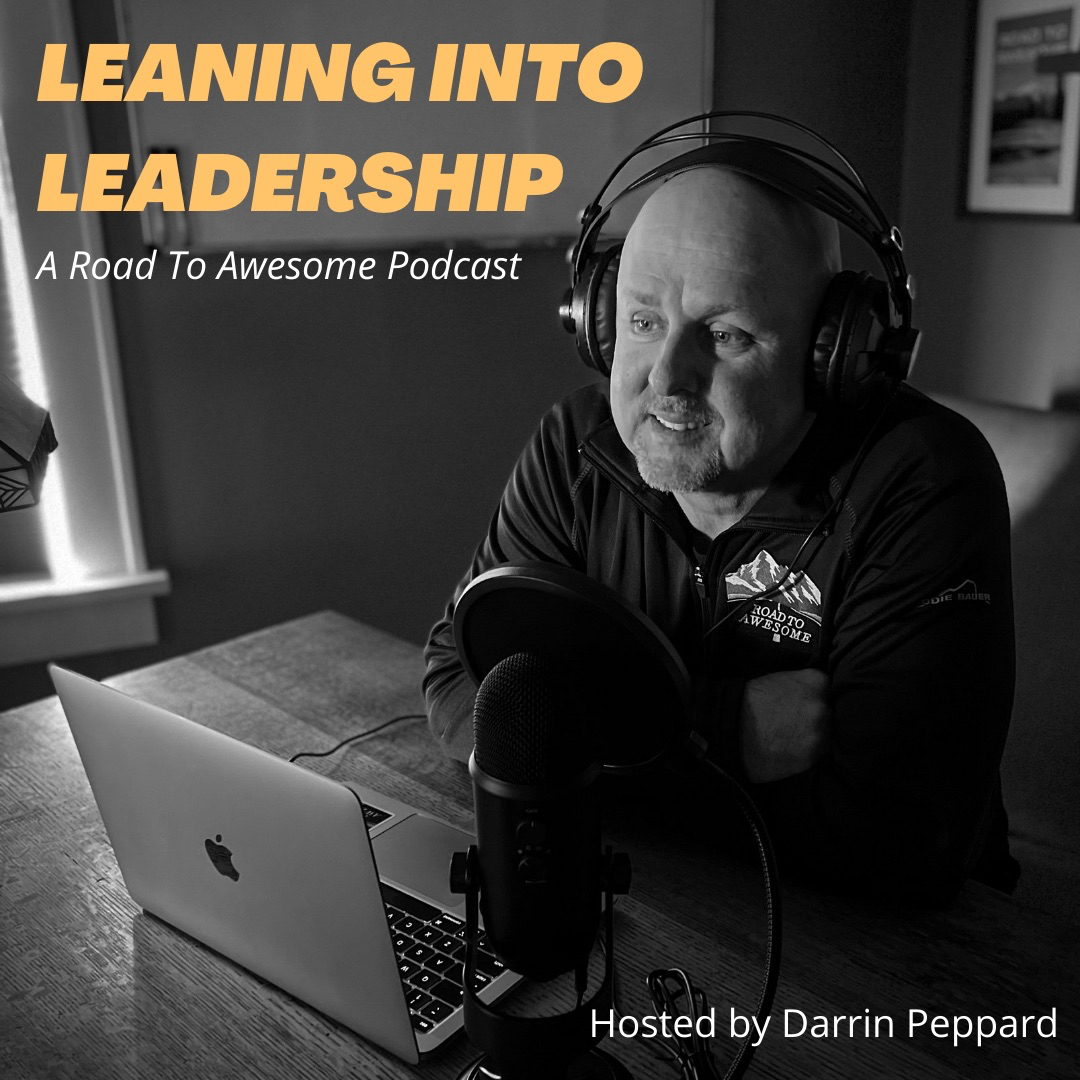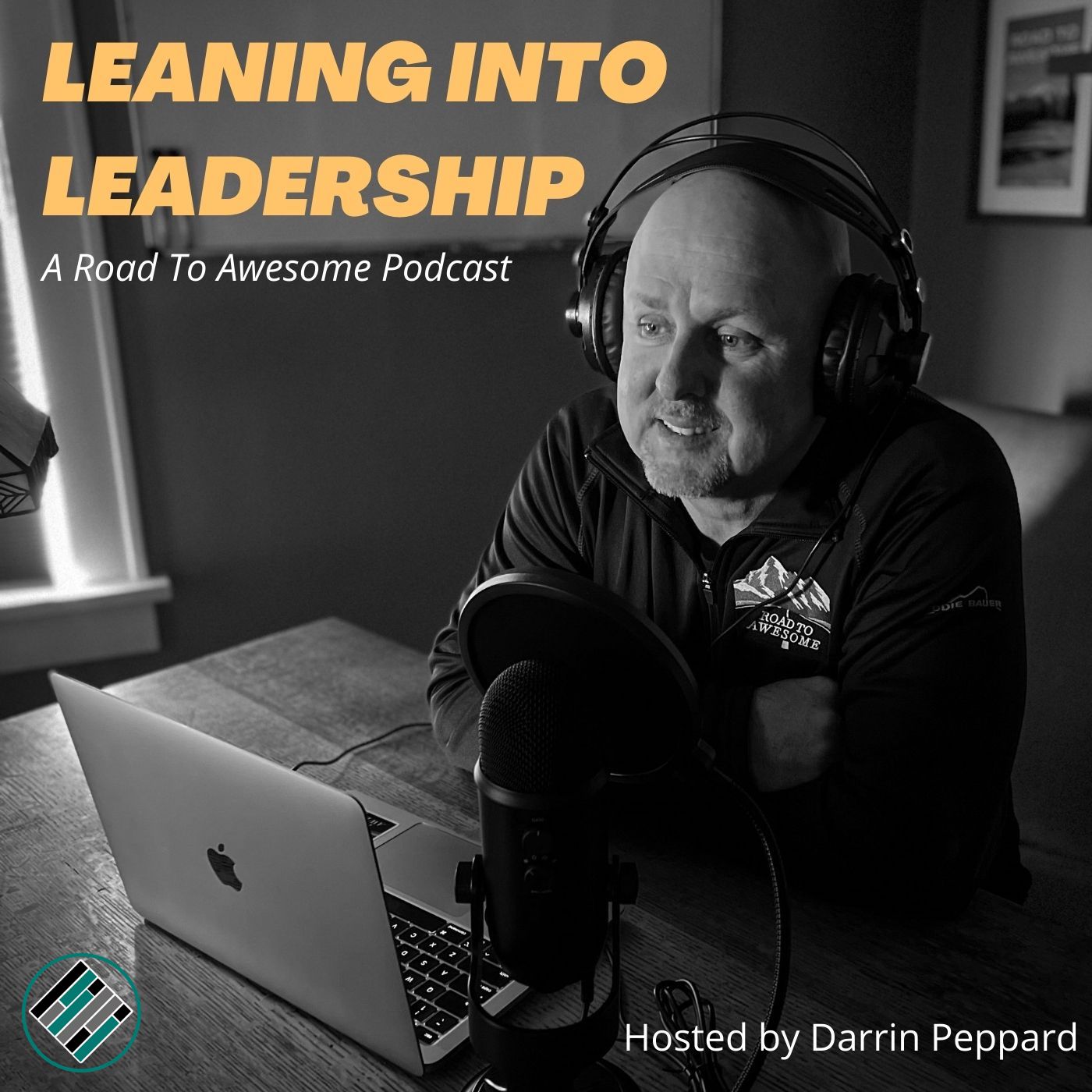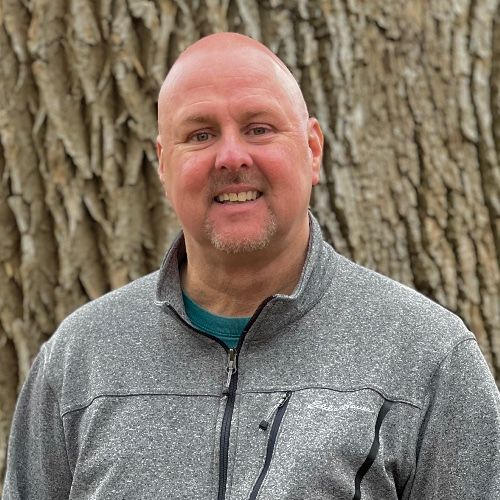Episode 240
Episode 240: Leading Through What You Can’t Control
In this solo episode, Dr. Darrin Peppard dives deep into one of the hardest challenges leaders face — guiding their teams through circumstances completely outside their control. From district-wide budget cuts to post-COVID uncertainty, Darrin explores how leaders can help their teams release what they can’t control and regain focus, trust, and agency around what they can.
Drawing on a real coaching conversation and a personal story from his time as a superintendent, Darrin outlines how acknowledging loss, re-centering on purpose, and empowering staff voice can rebuild trust and momentum during difficult times. You’ll walk away with practical tools you can use in your next leadership meeting — including a powerful exercise to help your team “throw away” the things they can’t control and reclaim focus on what truly matters.
In this episode:
- The emotional toll leaders and teams experience during crises
- How to help your people let go of what’s beyond their control
- A real-world example from a post-COVID leadership retreat
- Three concrete leadership actions to rebuild trust and focus
- A simple reflection question to guide your next team meeting
Leaders can’t fix everything — but they can bring calm, clarity, and courage to those they serve.
Transcript
All right, everybody, welcome into episode 240 of the Leaning Into Leadership podcast. Today is gonna be a special solo edition of the show. And what I really wanna get into today is all about what do you do in those moments when things are outside of your control and it's starting to affect the people that you lead? That's gonna be today's topic. Before we do that,
I want to give you a little bit of a teaser for what's coming on our special midweek edition of the podcast later this week. On episode 241, I am going to talk about a special announcement. I'm going to share with you something that really is, I guess, the next chapter in Road to Awesome. The next step on our journey, if you will. And super excited to talk about that. So make sure that you're looking for that one. That will drop Wednesday.
morning. Super excited for episode 241. But I'm also excited about episode 240. And here's really why. This particular episode really hit on with me earlier today. I had a conversation with a leader, and I'll talk about it here in just a minute, but this particular conversation took me back to a place where I had some opportunities and some challenges, if you will, as a leader.
was when I was the superintendent. And I had to think about how do I help my people let go of the things that we don't have any control of and get focused back to the things that we do. That's going to be the topic today on episode 240. And we're going to get to it right after this. All right, folks, here we go with episode 240. So let's start here. I want to share with you the conversation I was having with a leader earlier today.
The conversation really was about a handful of different things this particular leader was faced with. This is a leader that I have been coaching just now for a few months. And one of the things that she shared with me was they had a massive, massive budget crisis. And across the district, a huge amount of budget that needed to be cut, millions and millions of dollars that had to be cut from the district's budget.
Darrin Peppard (:And ultimately, if you've ever dealt with this, if you've ever had to go through budget cutting, you know that trimming school supplies is not going to move the needle. Ultimately, if you have to trim millions of dollars from your budget, that's going to be personnel. That's about the only place that you're going to be able to genuinely meet the need that you have. And without telling the story of that particular district and how
how and why they were in a place where they had to cut millions of dollars from their budget. This particular leader was really noticing how it was starting to impact the members of her team. The people in her school that she is charged with leading, they were starting to feel, I guess a bit jaded maybe is the right word, because this was completely outside of their control. And yet here they are seeing other members.
People in their hallways being told, you no longer have a job here. Seeing assistant principals cut from every different building across the district.
knowing that there were people who were counting on these jobs for their livelihood and who now, because of maybe some financial planning things that didn't work quite so well, were being told, you're going to have to go find another job. We don't have a position for you here. Now, whether it's a budget cut or it's reorganization or something that just simply wasn't your choice, we all run into those things that
affect us and affect the people that we are charged with leading. So today I really want to talk about how we help people let go of the things that they don't have any control of so they can really stay focused on their purpose and focus on the things that they actually can influence. So in the case of this individual, we were talking about how there's an incredible emotional toll that affects not only
Darrin Peppard (:the members of the team, but the individual leader themselves, you know, there's so much uncertainty that comes with these types of things. And we'll stay, I guess, on this topic of a massive budget cut, because I know there are districts across the country who have faced this. This individual I talk with today is not the only one who has gone through this. But there's just this erosion of trust. There's this level of fatigue. There's this
As a leader, you're trying to do everything you can to hold the organization together while everything around you feels like it's crumbling. I'll be honest with you, it's totally normal to feel this way. It's natural to have people fixate a little bit on the unfairness of the situation. I'm sure that there are people inside that building who their best friend was one of the
one of the teachers or instructional aides or even the assistant principal who were told your job no longer here is going to be happening. So you'll have to find something else.
It's tough. It's a challenge. And as a leader, it can be exhausting, but you have to still find as a leader.
a way to take on that big challenge, that important responsibility you have, which is to help our teams regain their agency. And not over the things they can't control, but over the things that they still can. So the more I heard this leader talk, it took me back to a situation for me. And I mentioned it just when we started the episode, but I remember that first post-COVID school year.
Darrin Peppard (:Man, there were so many things out there, so many challenges, so many things with whether it was from the health department or it was from our constituents, maybe it was from the board. I had a staff that was pretty divided. Some said we should be in, you know, in person. Some said, no, we absolutely should not be. And as the leader, and there was so few things that I had control of. But ultimately, you know, the decision was made that we were going to come back in person.
going to kick off the fall of:based on the information we have, what can we do to build a plan? Many people went through this. But something that I knew going into this, something I was very aware of, was that each member of my team felt a little bit different about returning in person. I knew that each member of my team
took the decision in March of:I knew that each one of them had experienced their own level of trauma here. And certainly a budget cut of millions and millions of dollars is something that's kind of similar to that because there's such little control that you have over that.
Darrin Peppard (:And so in my situation, I felt like it was extremely important with my leadership team to really dive into what are the things that we don't have control of? What are the things that have really hit us and have forced us into the position that we're in? And more importantly, what are the things that we actually can control? So the first thing I did with my leadership team was I asked them, I want you to just start writing. I want you to write down every factor.
that we have to be thinking about. I want you to write down everything that has crossed your mind in terms of things that have impacted us over the last six months.
Darrin Peppard (:And then I ask them to separate those things into things that we can control and things that we cannot.
Darrin Peppard (:Ultimately, I remember even saying something like, we can't control the mandates, can't control the masks, can't control the politics, but we can control how we show up for our people and for our kids.
Darrin Peppard (:So each individual here in the room with me, this is what I said to my team. I want you to take everything that you wrote that we do not have control of. And I want you to wad up those papers and I want you to throw them in the trash can. And I want you to say them out loud as you do it. Because if you say something and others have that exact same thing, I want them to throw it away too. And so here they started to go. They started throwing them.
You know, was things like, you know, mandates, throw it away. We don't have any control over that.
local perception. Yep, we're not having control over that. Throw that away.
decisions of the governor, wad it up, throw it away, and so forth. Ultimately, that allowed us to move on from the things that we couldn't control. It allowed us to regain some agency and say, let's focus on what we do have control of. I'm going to tell you, it was very cathartic for us to do that. So if you're leading a team now and you're dealing with something that has impacted you and you have to take it on,
and you know that your people are struggling with it, find a way to allow them to let go of the things that they can't control. Don't just tell them, let it go. That's not good enough. You need to do an exercise. You need to do something intentionally to set those things aside. The COVID example, as much as I don't like talking about COVID anymore, that one was just a really, really great example of what we needed to do. And it wasn't a magic fix.
Darrin Peppard (:But it was an opportunity to just let go. I remember later that, another year later, being at a retreat with my friend, Dr. Steve Wolf and an activity he led us through, which again, very similar kind of thing, writing down things that we just didn't have control of, things that had caused trauma for us and taking those individually and talking about them and then throwing them in a...
in a fire pit. So cathartic to just let those things go. I think it's important that we really lean into and think about the mindset of the team that we lead when we are dealing with these challenging times. So what I'd like to do now that I've shared that one with you is share maybe a few practical leadership moves that can help you navigate those challenging times to regain trust.
within your team and to help individuals move on from things that ultimately they had no control over. Number one comes from what I just shared, that is acknowledge the loss. Don't rush past it. Grief, frustration, whatever it is, it needs to be named openly. It needs to be talked about. It needs to be put out there. Don't bypass it. Allow
your team, your staff, your group.
To sit in that grief. To sit in that frustration. To name it. To talk about it.
Darrin Peppard (:and then to actually go through the process of saying, look, this hurts. This is not fair. And it's okay for us to feel this way. Acknowledge the humanness in these tough situations.
This is a step, folks, that seriously builds trust and builds psychological safety. These are human beings you're leading. Never forget about them.
Second, refocus on your purpose, refocus on your people. Take that conversation and re-center it back to our purpose. Why do we do the work we do?
Darrin Peppard (:think about, and maybe even ask, who is it that needs us right now? What is the difference we can still make? What impact can we make on our people?
And then identify maybe some small wins, some acts that impact others to remind them that they still matter, that they do still make a difference in the organization. The more you can do to help them get refocused, the more you can allow them to move forward from the trauma, from the grief, from the frustration, and get them refocused.
on your purpose and on your people, on that outcome, that's when you're going to see them start to come back together, start to pull back together and get refocused on your mission. And then really lean into ways to empower them to take ownership of where we go from here. This is where really allowing staff voice to be heard.
is so very important.
Back to my COVID example, at a point in time, my board asked me, know, Darren, should we be in person? Should we be virtual? And I said, you know, I don't think it's for me to make that decision. I think we need to hear from the staff. And I had probably 30 staff members who were in that particular board meeting who wanted to share their opinions. And I felt it was very important for them to have a voice. I wanted them to feel empowered.
Darrin Peppard (:whether the decision was made in the direction that they wanted to go, it was important that they had a voice.
give your staff opportunities for input.
Especially when it comes to your priorities and your next steps as you're problem solving, moving through whatever this challenge is.
Reinforce that they have autonomy in their work. Reinforce that they are very highly competent, very highly intelligent individuals, and that you trust them, even with small decisions.
And this, just like with the opportunity to let go of the things you can't control, again rekindles that sense of agency and it helps to really rebuild trust in leadership. In my original example, the person who I spoke with today, the principal I talk with today,
Darrin Peppard (:The person who has to clean up the mess, not the person who created the mess. Those people have moved on. And now there are new people in those roles.
her staff holding ill will towards those positions makes no sense anymore because the people who were in those positions aren't there anymore. So allow them to grieve, re-center and refocus them, and then give them some input, give them an opportunity to be a part of the solution, and that is what rebuilds trust and leadership. Because
If we're going to move forward from these types of challenging situations, it requires a great deal of trust. It requires a great deal of communication and certainly it requires a great deal of clarity.
Now, ultimately, you may not be able to fix layoffs or reverse budget cuts or stop a global pandemic, but you can be the calm in the eye of that storm. You can be the voice that reminds people that even when we have very limited scope of control,
That's what it's all about. Not the things that we can't control.
Darrin Peppard (:Maybe even invite your people to do some reflection, to journal. I might even invite you to do that.
Maybe when you finish this episode, sit down and write this question.
What is one thing I can control that will help my team move forward this week?
might be an absolutely wonderful activity for you to do in a staff meeting. Ask them, what's one thing I have control of that'll help us move forward?
Ultimately, we want to build great teams and building great teams requires building trust, building shared focus and building that shared efficacy. To me, that's what it's all about, folks. This was a bit of a rant today, but again, it came from a place where I felt
Darrin Peppard (:I needed to step up and say something I needed to share. know this time of year, sometimes things are getting really tough. Not the first time this conversation today, not the first time that I have heard from leaders who have people who are struggling. focus on what you can control, let go of the things that you can't. Thank you so much for joining me here on the Leaning Into Leadership podcast, folks. Get out there and have a road to awesome week.


